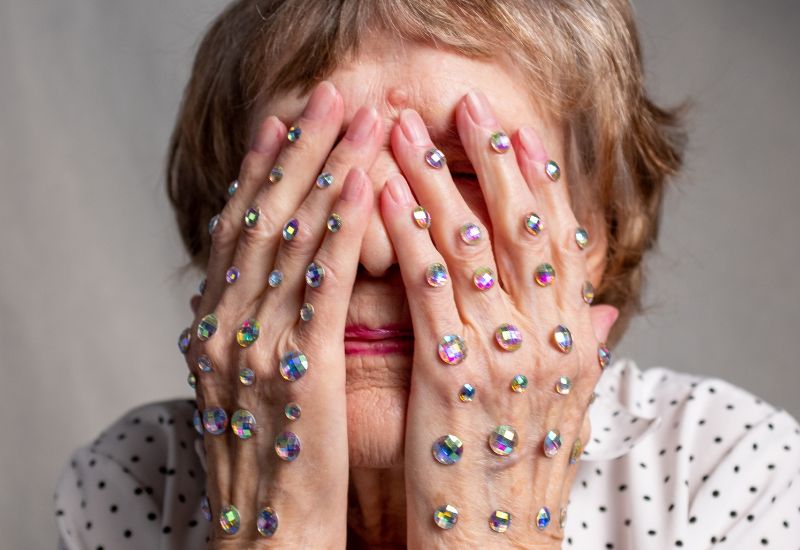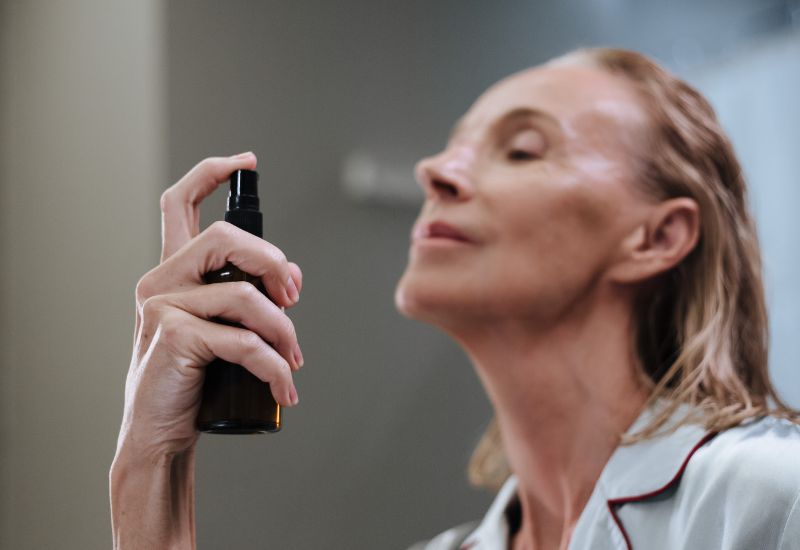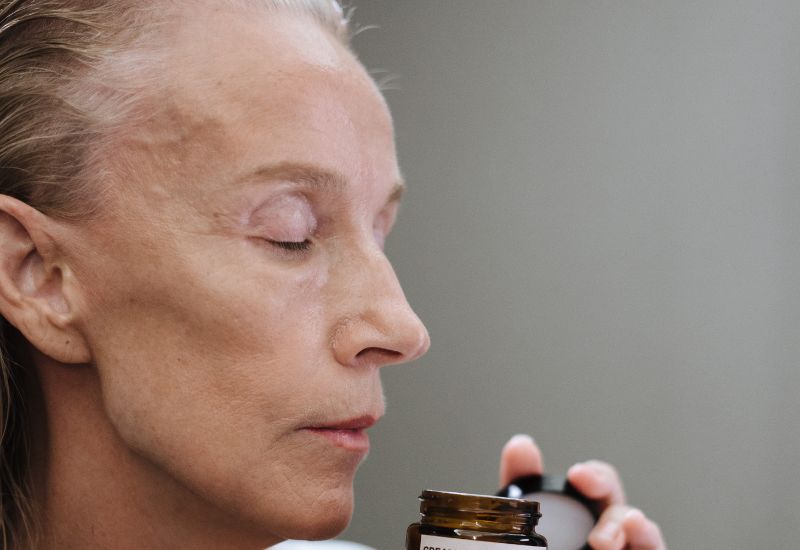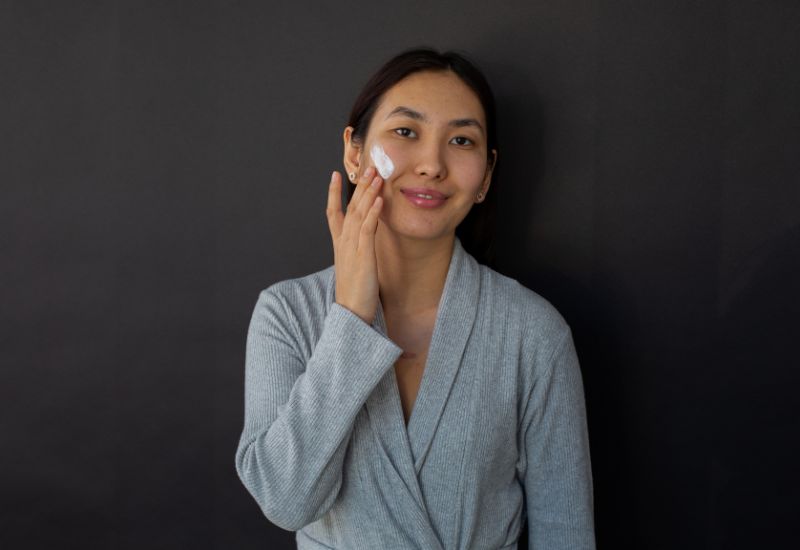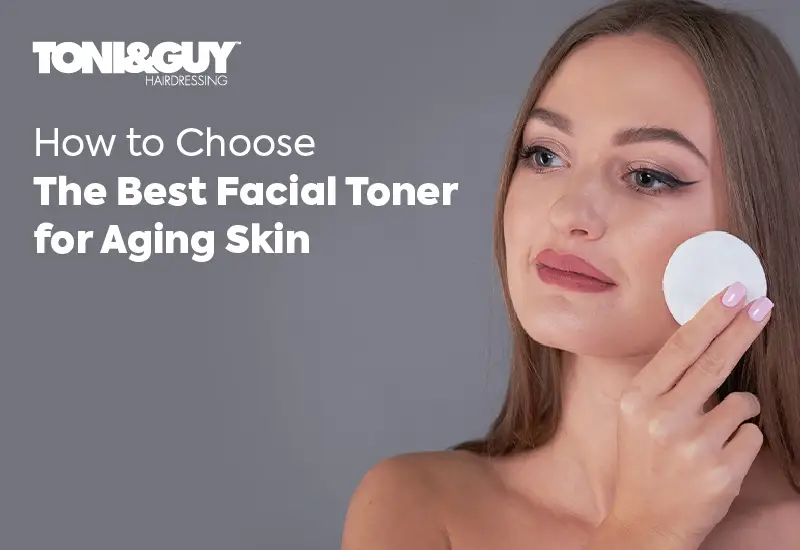
Introduction
The benefits of facial toners for ageing skin are apparent, and they have long been a mainstay of skincare regimens. These liquid compositions are made to balance the skin’s pH level, eliminate any pollutants that linger after cleansing, and give it a revitalising hydration boost. But with so many toners on the market, it’s important to pick one that is made precisely to your skin’s requirements.
In this in-depth article, we will walk you through the process of choosing the best facial toner for ageing skin. We’ll guide you with the knowledge you need to make informed decisions and achieve healthier, more youthful-looking skin, from comprehending your skin type to identifying crucial ingredients and avoiding dangerous chemicals. Let’s dive now!
Understanding Aging Skin
Our skin changes as we get older, which adds to the evident ageing symptoms. These include a reduction in moisture retention, a loss of suppleness, the appearance of fine lines and wrinkles, and an uneven texture. These alterations are mostly brought about by a decline in the production of collagen and elastin and a decreased rate of cell turnover.
In order to address these issues and encourage healthy, youthful-looking skin, facial toners are essential. They can assist in tightening pores, regulating the pH of the skin, and restoring hydration. Additionally, toners frequently include moisturising agents, antioxidants, and vitamins that nourish and renew the skin. These qualities enhance general skin tone and texture, fight the signs of ageing, and give skin a smooth, revived appearance.
Identifying Your Skin Type
When selecting a face toner for ageing skin, it is crucial to know your skin type. Dry, oily, and mixed skin types are the most prevalent.
Dry skin might have flaky patches and feel tight and scratchy. Excess sebum production is what gives oily skin its glossy appearance, enlarged pores, and predisposition for acne outbreaks. Both are present in combination skin, which has dry cheeks and an oily T-zone (forehead, nose, and chin).
Start by monitoring how your skin responds throughout the day to identify your skin type precisely. Keep an eye out for things like sensitivity, dryness, oiliness, and pimples. Additionally, think about going to a dermatologist who can determine your skin type and offer tailored advice.
Essential Ingredients in Anti-Aging Toners
Certain components in anti-ageing toners have demonstrated their effectiveness in addressing particular indications of ageing and promoting youthful skin. Here are some essential components to look for
- Hyaluronic Acid: This hydrating superstar draws and holds onto moisture, giving the skin a plump appearance and minimising the visibility of fine lines and wrinkles. It enhances firmness and elasticity while assisting in restoring the skin’s natural moisture barrier.
- Retinol: Retinol is a vitamin A derivative that is well known for its ability to promote the formation of collagen, reduce wrinkles, and even out skin tone. Additionally, it encourages cell turnover, revealing younger-looking skin.
- Vitamin C: As a strong antioxidant, vitamin C fights free radicals and aids in the fading of age spots, sun spots, and hyperpigmentation. It also increases collagen synthesis, resulting in tighter and brighter skin.
- Peptides: These tiny protein fragments promote the synthesis of collagen and elastin, which improves skin suppleness and delays the ageing process. Additionally, peptides can aid in reducing wrinkles and promoting a younger-looking complexion.
It’s critical to check product labels for these advantageous components to make sure you’re getting an anti-ageing toner that effectively addresses your unique issues.
Avoiding Harmful Ingredients
While looking for healthy nutrients, it’s equally crucial to stay away from dangerous additives that could endanger ageing skin. Several ingredients to avoid include:
- Alcohol: Toners containing alcohol can be unpleasant and dry, robbing the skin of its natural oils and causing it to become more sensitive and dry.
- Sulphates: Sulphates, including sodium lauryl sulphate (SLS), are frequently present in cleansers and toners and can be harsh and disruptive to the skin’s moisture barrier, resulting in dryness and irritation.
- Artificial fragrances: These scents can aggravate allergies and irritate skin that is already sensitive. They may also dry the skin and aggravate skin sensitivity.
Read product labels carefully to select toners free of damaging ingredients. Search for toners with the tags “alcohol-free,” “sulfate-free,” and “fragrance-free.” Instead, choose items that contain natural or botanical-based components because they are kinder and less prone to irritate or harm ageing skin.
Selecting the Appropriate Formulation
There are several toner formulation alternatives available, each with special advantages for ageing skin. The most popular toner formulas are liquid, gel, and mist toners.
- Liquid toners are light and quickly absorbed, hydrating the skin and balancing its pH.
- Gel toners are good for dry or sensitive ageing skin because of their slightly thicker viscosity, high hydration, and calming qualities.
- Mist toners are available in spray form, providing a revitalising blast of hydration that can be used all day long.
Your skin type and preferences should be taken into account while selecting the formulation. Rich hydration in a gel toner may be beneficial for dry skin, whilst oily skin may prefer a mild liquid toner. Combining liquid and gel toners on various parts of the body can be beneficial for mixed skin. If you like a cool spray, a mist toner might be a fantastic option.
Look for moisturising gel toners containing hyaluronic acid in them if you have dry skin. Lightweight liquid toners without oil that contain components like witch hazel are good for oily skin. For different regions of the face, combination skin can try using a moisturising mist toner along with a light liquid toner. To find the best formulation for you, explore and adjust your choice based on your skin’s requirements.
Researching and Comparing Products
When selecting an anti-ageing toner, conducting thorough research and comparisons of various toner brands and products is crucial. Why it matters is as follows:
- Quality Control: Research enables you to find recognised brands that are recognised for their excellence and efficiency in managing ageing skin issues.
- Analysis: Comparing products enables you to identify the main components and their relative concentrations, allowing you to select formulations tailored to your requirements.
- Price Consideration: By comparing prices among companies, you can select a toner that matches your budget without sacrificing quality.
- Customer feedback: Reading online reviews can offer you an understanding of what other people have experienced with the product, which can help you assess its efficacy and any potential negative effects.
When reading internet reviews, consider elements including ingredient efficacy, packaging, fragrance, and texture. Take into account several reviews to acquire the whole picture. Prioritise toners as well that have good client reviews, open ingredient listings, and affordable prices. Keep in mind that your skin deserves the best, so take the time to shop around and compare options before deciding.
Patch Testing and Trying the Toner
To avoid negative reactions and assure compatibility with your skin, new toners must be patch tested. Here is why it’s important:
- Allergic Reactions: Patch testing can help determine whether a person is sensitive to or allergic to any of the compounds in the toner, preventing skin rashes or irritation.
- Skin compatibility: This feature enables you to gauge how your skin will respond to the toner’s formulation, guaranteeing that it will meet your specific requirements and not aggravate any preexisting conditions.
- Safety Advice: Patch testing reduces the possibility of using a toner that will hurt or harm your skin.
Apply a small amount of the toner to a clean, small patch of skin (behind the ear, for example, or on the inner forearm) to conduct a patch test. After 24-48 hours, leave it on and check for any redness, itching, or irritation. You can use the toner in your skincare routine without risking any negative responses.
Use the toner once per day at first as you gradually include it into your routine to evaluate its efficacy. Pay attention to changes in moisture, texture, and general appearance to see how your skin responds over time. If necessary, alter your usage or frequency, and keep in mind that it can take some time for results to appear.
Toni&Guy Hair Salon
To revive and restore vitality, Toni & Guy offers specialised skin and face services for ageing skin. Our skilled beauty experts provide individualised treatments like anti-ageing facials, skin tightening, and cutting-edge skincare products to fight ageing symptoms like wrinkles and elasticity loss.
Toni&Guy offers a wide selection of beauty services in addition to our skin and face therapies. Our team of beauty experts guarantees a thorough beauty experience, catering to client’s particular needs and assisting them in looking and feeling their best from head to toe. This includes everything from makeup artistry and manicures to waxing and body treatments.
Conclusion
A journey that demands great consideration is selecting the best facial toner for ageing skin. Here is a quick recap of the above blog.
- Recognise the changes that occur with ageing skin and how toners might help.
- To find a toner that works best for you, precisely determine your skin type.
- For anti-ageing advantages, look for key components, including hyaluronic acid, retinol, vitamin C, and peptides.
- Avoid dangerous substances such as sulphates, alcohol, and artificial scents.
- After considering several toner formulations, choose a toner formulation that works best for your skin type and preferences.
- Research, brand comparison, internet reviews, and a focus on consumer feedback and quality are all recommended.
- To prevent negative reactions, patch-test new toners before gradually incorporating them into your skincare regimen.
Be patient, take your time, and seek out a dermatologist if necessary. Start this path with confidence and enjoy the trip to healthier, more youthful skin since your skin deserves the best care.
FAQs
- What is facial toner, and why is it important for ageing skin?
Facial toner is a liquid skincare product that helps to remove impurities from the skin and restore its pH balance. It is important for ageing skin as it can help to tighten and hydrate the skin, reduce the appearance of fine lines and wrinkles, and improve overall skin texture and tone.
- How do I choose the best facial toner for ageing skin?
When choosing a facial toner for ageing skin, it’s important to look for ingredients that are known to benefit mature skin, such as hyaluronic acid, antioxidants, and peptides. It’s also a good idea to choose a toner that is alcohol-free, as alcohol can be drying and irritating to the skin.
- Can I use any facial toner for ageing skin?
Not all facial toners are suitable for ageing skin. It is best to look for toners specifically formulated for mature skin, as they will have ingredients that target the signs of ageing and provide the necessary hydration and nourishment.
- How often should I use facial toner on ageing skin?
It is generally recommended to use facial toner twice a day after cleansing your skin. However, everyone’s skin is different, so it’s important to pay attention to how your skin reacts and adjust the frequency of use accordingly.
- Are there any specific brands of facial toners that are recommended for ageing skin?
There are many brands that offer facial toners specifically designed for ageing skin. Some popular options include Paula’s Choice, Clinique, and Kiehl’s. It’s always a good idea to read reviews and choose a brand that suits your specific needs and preferences.
